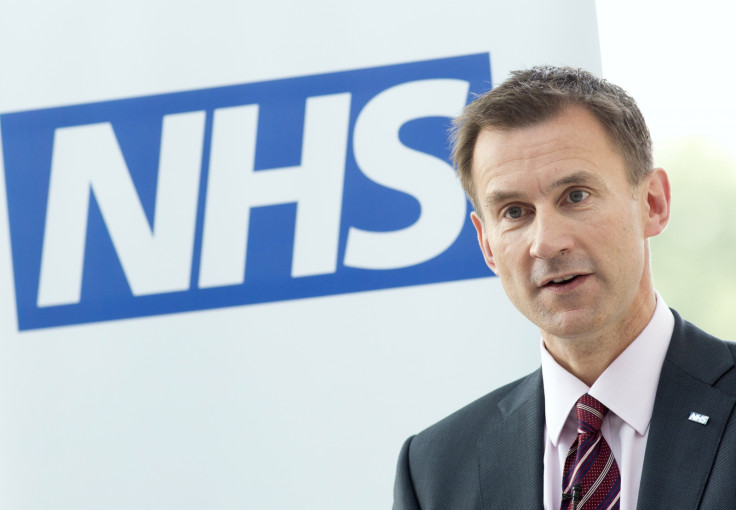NHS staff slap down Jeremy Hunt after he accuses doctors of not working at weekends

NHS employees up and down the country have reacted to Jeremy Hunt's plans to impose a seven-day working week on hospital doctors in England.
During the weekend medical staff posted pictures of themselves to social media sites such as Facebook and Twitter using the hashtag #ImInWorkJeremy to show the health secretary NHS staff regularly work during the weekend.
Hunt had previously suggested senior staff were not working enough weekend shifts during a radio interview and said top doctors should "get real" about the importance of a seven-day service.
The selfie campaign is the brainchild of an anonymous trainee doctor, according to medical website Pulse.
@Jeremy_Hunt busy weekend..if only our consultants were here to help us! Oh wait! They are!! #ImInWorkJeremy pic.twitter.com/6frjrTe7p7
— Elvis Aduwa (@ElvisAduwa) July 18, 2015The founder of the campaign stressed it had not been launched as a protest against working on weekends but to make the point that NHS staff already hard at work making sure there is a 24/7 service.
The trainee doctor said via Facebook, the campaign stated: "Right, so July 18th is a Saturday, and that's the weekend. You know, the weekend where none of us are working.
"Except a lot of us are… So, tweet Jeremy Hunt (@Jeremy_hunt) with the #ImInWorkJeremy either with a comment or a selfie…
"Together, we can get this trending and show Mr Hunt, that we are in fact in work."
Hunt had said that a "Monday to Friday culture" in parts of the NHS had "tragic consequences" and said 6,000 people die each year because of this.
Relaxing in sunny Skegness... Urgent Care Centre. 13 hour shift today, where are you Mr Hunt #ImInWorkJeremy pic.twitter.com/ThZSTsB4fz
— Chris Lowry (@bigonroad) July 18, 2015He said: "The problem dates back to 2003 when the then government gave consultants the right to opt out of working at weekends – that's a right that nurses don't have, midwives don't have, paramedics, ambulance drivers and so on don't have."
The British Medical Association (BMA) leader Dr Mark Porter said the union supported more seven-day working but accused Hunt of being "too simplistic", according to the BBC.
The current consultant contract means senior doctors can opt out of weekend work if they want as long as it is non-emergency in nature – although they are still expected to be on call.
#ImInWorkJeremy in operating theatre since 08:00. Not being paid £200 per hour! pic.twitter.com/emHLAvHvxn
— Sue Harding (@SueHarding663) July 18, 2015© Copyright IBTimes 2025. All rights reserved.




















